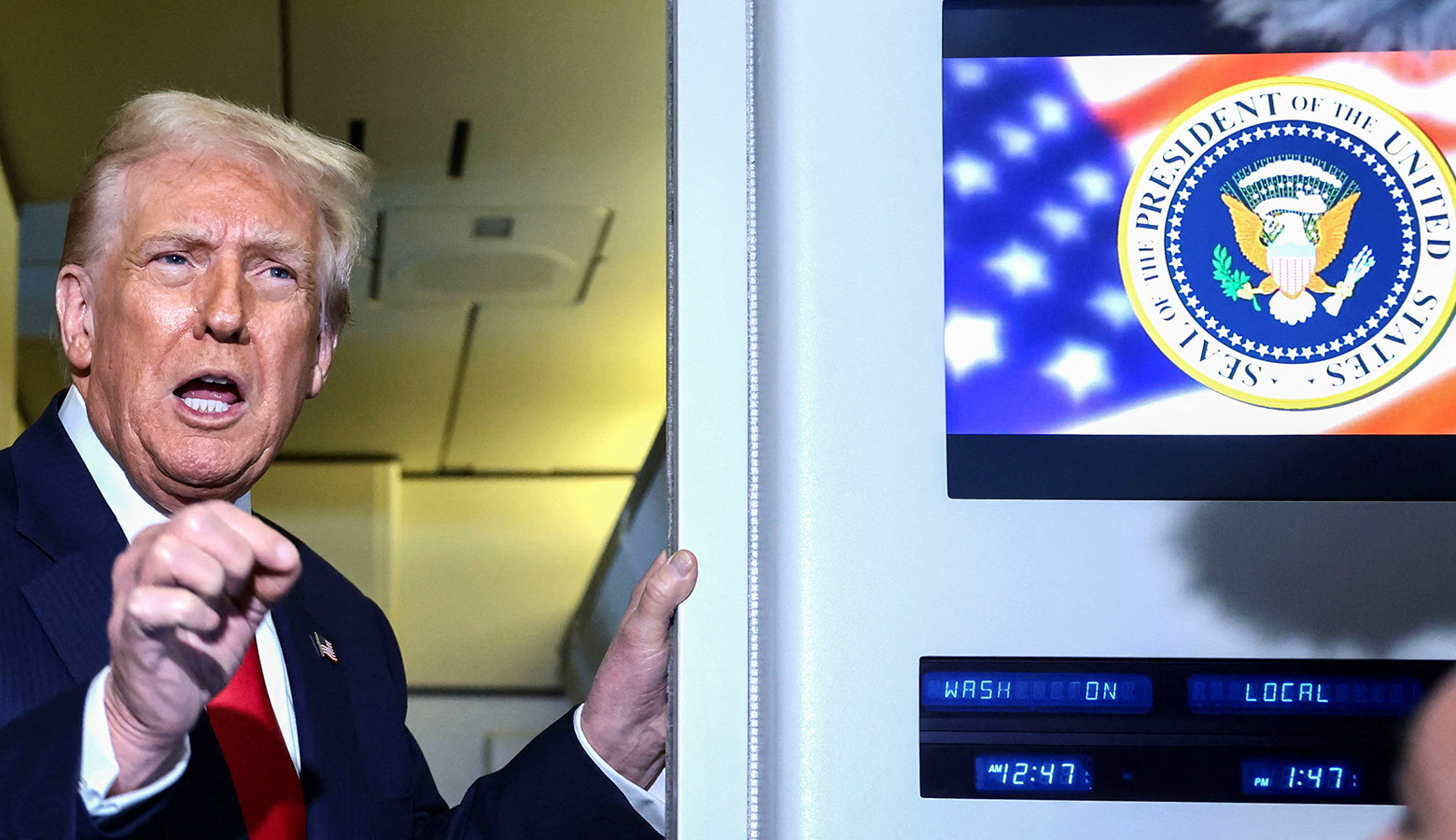In his latest piece in The American Prospect, executive editor David Dayen points out a huge flaw in President Donald Trump's latest quest to remake the media landscape.
"There’s a problem with Trump’s grand plan," Dayen writes. "He’s not the only one who gets to make the decision."
Trump, Dayen explains, is trying to "force Warner Bros. Discovery to agree to a merger with Paramount, consolidating media with his allies the Ellisons. But states can block that merger."
In July 2025, Paramount agreed to pay $16 million to settle a lawsuit from Trump over a 60 Minutes interview with then-Vice President Kamala Harris.
Trump had claimed the interview was deceptively edited to favor Harris and had filed a $20 billion lawsuit, which many legal experts believed was baseless. The $16 million settlement, which did not include an apology from CBS, was directed toward Trump's presidential library.
The settlement with Trump occurred while Paramount was seeking federal approval for an $8 billion merger with David Ellison's Skydance Media. The Federal Communications Commission (FCC), led by Trump appointee Brendan Carr, approved the merger shortly after the settlement. This led to accusations from critics and Democratic senators that the settlement was a "bribe" to ensure regulatory approval.
As part of the merger, Skydance agreed to make concessions to the Trump administration, including eliminating diversity, equity, and inclusion (DEI) policies at CBS and appointing an ombudsman to address claims of bias in news coverage.
Dayen reveals that a rumor has emerged that is "another example of Trump stage-managing the business world," in which "Warner Bros. Discovery — which owns a movie studio, numerous cable networks (CNN, Discovery, TBS, TNT, HGTV, Cartoon Network, TCM), the pay-TV channel HBO, streaming service HBO Max, DC Comics, part of The CW network, part of Fandango, several gaming studios, some theme park in Madrid and much more — has publicly announced that it is for sale. Several companies, including Comcast, Netflix, and Amazon, are sniffing around a purchase, but the one that’s clearly amped to acquire WBD is Paramount, fresh off of being acquired itself by David Ellison’s Skydance Media."
And while Paramount made three "unsolicited offers" for Warner Bros. Discovery, Dayen says, none were accepted.
"CEO David Zaslav opening up the company for public bidding robs Paramount of its head start," Dayen explains, saying that Ellison can try to close the deal by calling "his friends in the Trump administration to force the issue," meaning Trump isn't "the only one who gets to make the decision."
According to The New York Post, Trump's plan is that the "White House would give preferential treatment to Paramount in any sale by making it harder for any other suitor to buy WBD."
"To reinforce this, Makan Delrahim, Trump’s head of the Justice Department Antitrust Division in the first term, has been hired by Paramount to ensure strong administration ties," Dayen notes.
Vowing to block the sale, Dayen says, is illegal, adding, "if that matters anymore."
"The Ellison family is a longtime Trump ally; CBS News is being remade in Bari Weiss’s image; Comcast and Netflix at least have angered the president with Saturday Night Live parodies or perceived wokeness; and these grievances are driving the discretionary application of law," Dayen writes.
"The Ellisons, who already have their hands on TikTok, would add CNN to CBS News, building out a right-leaning rival to Fox in old and new media. Doing so through a shotgun wedding with implicit (if not explicit) approvals is just deeply corrupt," he adds.
In a "normal environment," Dayen says, this would violate antitrust laws, not to mention the fact that consolidating studios would cause mass layoffs, price hikes and more.
"Under the Clayton Act and their interpretation in new merger guidelines written in 2023 by President Biden’s antitrust enforcers, a merger between Paramount and WBD would trigger several structural presumptions of illegality, with respect to both movie studios (the combined company would have more than 30 percent of the market) and televised news," Dayen says.
And, any state that gets programming from WBD or Paramount — "in other words, every state — would have jurisdiction to sue," he explains.
"Maybe state enforcers won’t want to prejudge the case, but others have already stepped forward," he says, noting that The Writer's Guild of America has said that such a sale would be “a disaster for writers, for consumers and for competition” and said their members would “work with regulators to block the merger.”
"I doubt that they’re referring to the Trump administration," Dayen says. If states don't stand up to Trump, the merger may very well go through.
"In the absence of a strong stand from state regulators, Trump and Ellison will likely get what they want," Dayen says.
Gail Slater, the United States Assistant Attorney General for the Department of Justice's Antitrust Division, hasn't "brought a single new merger or monopolization case to trial this year," Dayen explains. "In its bid to squash a judicial proceeding that could blow open the corruption hanging over competition policy, Slater’s Antitrust Division concedes that states can bring their own actions to block mergers anytime they want."
Dayen says states should pay attention, adding, "They ought to take her up on it preemptively in the WBD-Paramount case."
